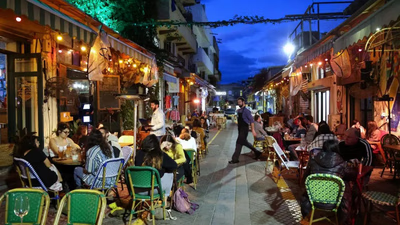
Israel"s transport infrastructure enhances trade efficiency. "
Israel has an extensive road network, including highways and local roads, connecting major cities and towns. The road infrastructure is modern and well-maintained, enabling efficient transportation within the country. The main highways include Highways 1, 2, 4, 6, and 20. Public transportation in Israel is widely available and includes buses, trains, and light rail systems. Buses are the primary mode of public transportation, serving both urban and intercity routes. Egged, the largest bus company in Israel, operates a comprehensive network of bus services throughout the country.
Israel has a highly advanced telecommunications sector, providing reliable and extensive coverage throughout the country. Both landline and mobile phone services are widely available, with several major telecommunication companies operating in the market. Israel has a high rate of internet penetration, with widespread access to broadband and high-speed internet services. The country has a well-developed internet infrastructure, and internet connectivity is available in urban as well as rural areas. Mobile phone usage is prevalent in Israel, and the country has a competitive mobile telecommunications market. Multiple mobile network operators offer 2G, 3G, 4G, and 5G services, providing comprehensive coverage across the country.
The Gaza Strip has a small and limited network of roads. The area has a standard north-south lane that has been destroyed and left unused, with few lines left. This railway used to end in the south with the Egyptian railway and in the north with the Israeli railway. Ships are not allowed to enter or leave the Gaza Strip by sea, and the Israeli navy is blocking the passage of ships to Gaza. Goods enter Gaza through the Rafah crossing in southern Gaza, bordering Egypt, and five crossings on the Israeli border. In addition, in southern Gaza, people enter the Gaza Strip from Egypt by digging tunnels.
The construction of the only port in the Gaza Strip has been abandoned after the start of the Al-Aqsa Intifada in 2000. Fishing takes place off the coast of Gaza. The Israeli army only allows fishermen in Gaza to fish 5.5 km offshore. This distance was previously 11 km but was reduced at the beginning of 2014. Gaza International Airport was opened on November 24, 1998, following the agreements reached in the Second Oslo Accords of 1995 and the 1998 Wi-Fi Memorandum of Understanding. The airport was built for $ 86 million by Japan, Egypt, Saudi Arabia, Spain, Germany, and Morocco in the southern Gaza Strip. The airport had a capacity of 700,000 people a year.
The airport was closed by Israeli order in October 2000, and its runway was destroyed by Israeli defense forces in December 2001. The airport has since been renamed Yasser Arafat International Airport. The Gaza Strip has a basic fixed telephone system provided by an aerial cable system, as well as a wide range of mobile services provided by a platform (Jowl) or Israeli service providers such as Cellcom. Four companies in the Gaza Strip are offering Internet services that are currently competing with each other over high-speed Internet and telephone Internet.
Israel has several ports along its Mediterranean coastline, which facilitate maritime transportation and international trade. The major ports include the Port of Haifa and the Port of Ashdod. These ports handle cargo shipments and provide connections to various destinations around the world. Most households in Gaza have radio and television (70%), and about 20% have a personal computer. People living in the Gaza Strip have satellite TV channels (Al-Jazeera, Egyptian and Lebanese TV channels, etc.), local private channels, as well as Palestinian radio and the first and second Israeli radio and television channels.
Israel Railways operates a train network that connects major cities, including Tel Aviv, Jerusalem, Haifa, Be'er Sheva, and several other towns. The train system provides a convenient and comfortable mode of transportation. The city of Jerusalem has a light rail system called the Jerusalem Light Rail, which serves various neighborhoods and important landmarks within the city. Israel has several airports that handle both domestic and international flights. The main international airport is Ben Gurion Airport, located near Tel Aviv. It serves as a major hub for international travel and connects Israel to destinations worldwide. Other airports, such as Eilat Ramon Airport and Haifa Airport, cater to domestic and some international flights.
Various internet service providers offer broadband internet services to residential and commercial users. These ISPs provide a range of internet plans, including fiber-optic connections, cable internet, and DSL services. Israel has a diverse media landscape, with numerous television channels, radio stations, and print publications. The media sector in Israel provides a mix of public and private broadcasting services, with both Hebrew and Arabic language content. Israel has a thriving technology sector, and many Israeli companies have developed popular internet and mobile applications used globally. These applications span a wide range of sectors, including communication, navigation, e-commerce, and social networking.




